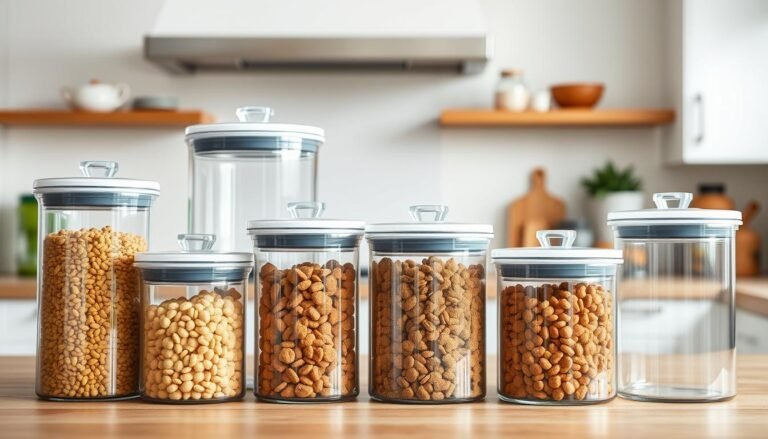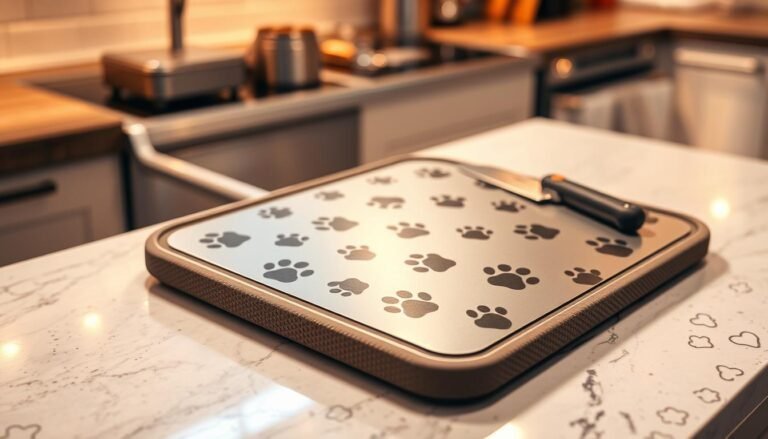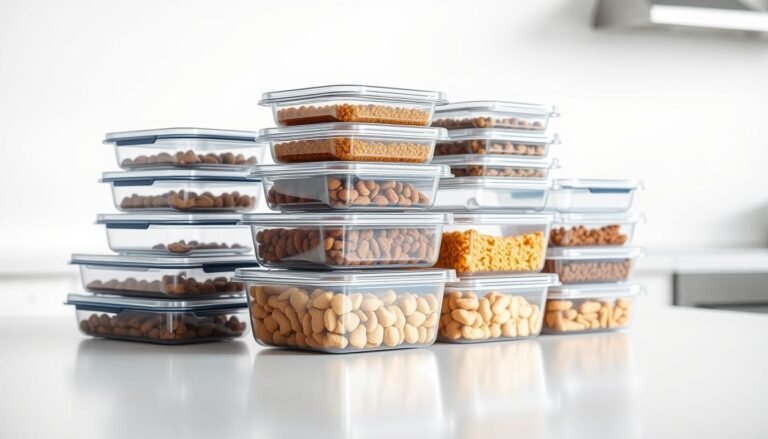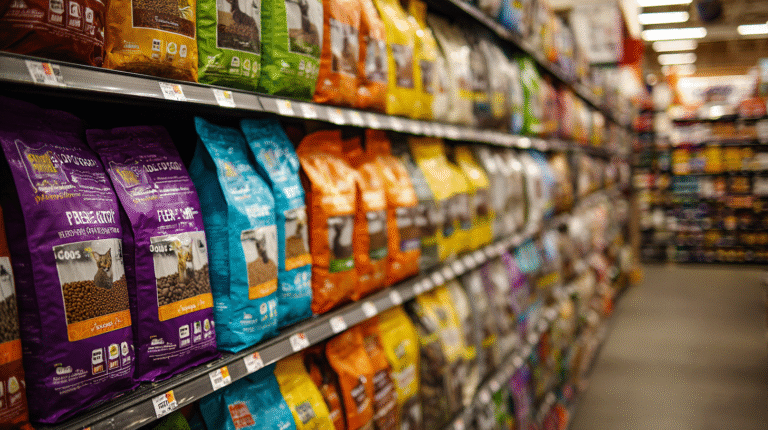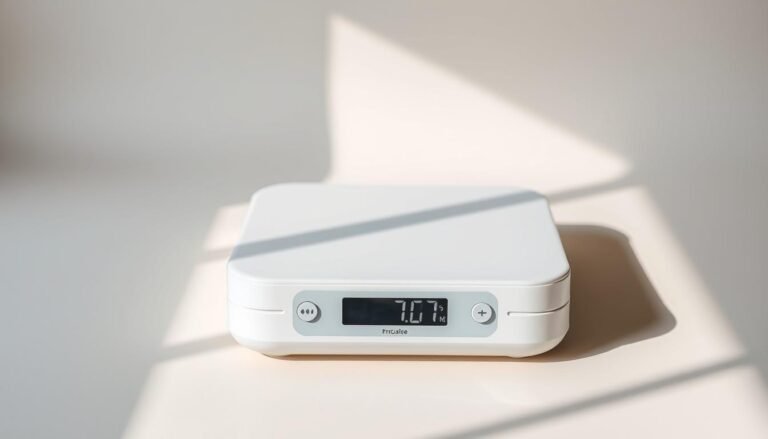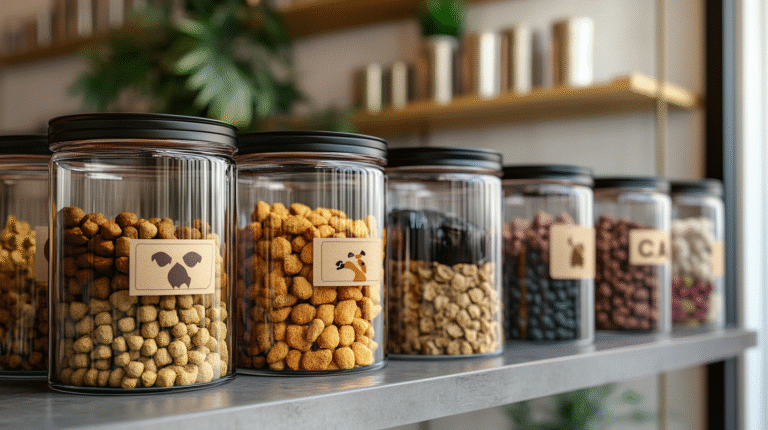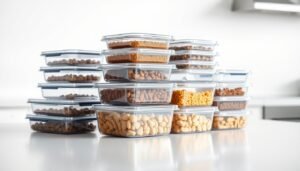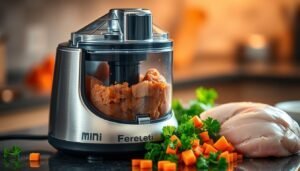As a pet owner, keeping your furry friends healthy is key. Cleaning their food utensils is often overlooked. It’s vital to use a pet safe dish detergent to stop germs and bacteria.
Regular dish soaps can have harsh chemicals that harm pets. So, it’s best to choose an eco-friendly pet dish soap that’s gentle and safe.
Experts say, “Your dog and cat use something every day that brings them joy. But it can also carry germs and bacteria.” This shows why using a safe dish detergent for pets is so important.
Think about using a product like the one from Unleash Wellness. It’s made with natural ingredients and is 100% safe for pets.
Key Takeaways
- Using a pet-safe dish detergent is crucial for pet health.
- Regular dish soaps can contain toxic chemicals.
- Eco-friendly pet dish soap is a safer alternative.
- Natural ingredients are essential for pet safety.
- Effective cleaning prevents the spread of germs and bacteria.
The Hidden Dangers of Regular Dish Soaps for Pets
Using regular dish soaps for pet dishes can be harmful. It might seem easy to use the same soap for both. But, the risks are big.
Toxic Ingredients in Standard Detergents
Standard detergents have harsh chemicals that are bad for pets. Things like phosphates, bleach, and artificial fragrances can be toxic. It’s important to use a non-toxic pet dish cleaner to keep pets safe.
How Chemical Residues Affect Pet Health
Chemical residues from dish soaps can harm pets. They can cause stomach problems and skin issues. Using a pet-friendly dishwashing liquid is key to keeping pets healthy.
Common Symptoms of Detergent Sensitivity in Pets
Pet owners should watch for signs of detergent sensitivity. Look for vomiting, diarrhea, tiredness, and skin rashes. If a pet shows these signs, it’s time to switch to a pet-safe dish detergent. Keeping an eye on pet health and changing cleaning habits is important.
Understanding Pet-Safe Dish Detergent for Cleaning Pet Food Utensils
Cleaning your pet’s food utensils needs a gentle dish detergent. This type of detergent is safe for their skin and removes food well. It makes sure your pet’s utensils are clean and safe to use.
What Makes a Detergent “Pet-Safe”
A pet-safe dish detergent avoids harsh chemicals that can hurt your pet. It’s made with natural ingredients that are safe and break down easily. When picking a detergent, look for “pet-safe” or “non-toxic” labels.
- Made with natural ingredients
- Biodegradable
- Non-toxic
- Free from harsh chemicals
Some pet-safe dish detergents are super concentrated. They clean well but are gentle on skin. For example, a “super concentrated liquid pet dish detergent” is made for animal care. It’s gentle but tough on food residue.
| Characteristics | Pet-Safe Detergent | Regular Detergent |
|---|---|---|
| Ingredients | Natural, Biodegradable | Chemical-based |
| Skin Gentleness | Gentle | Harsh |
| Effectiveness | Effective against food residue | Effective but may leave residues |
Benefits of Specialized Pet Dish Cleaners
Using a gentle pet dish detergent has many benefits. It cleans utensils safely without leaving harmful chemicals. It’s also gentle on your pet’s skin, lowering the chance of irritation or allergies.
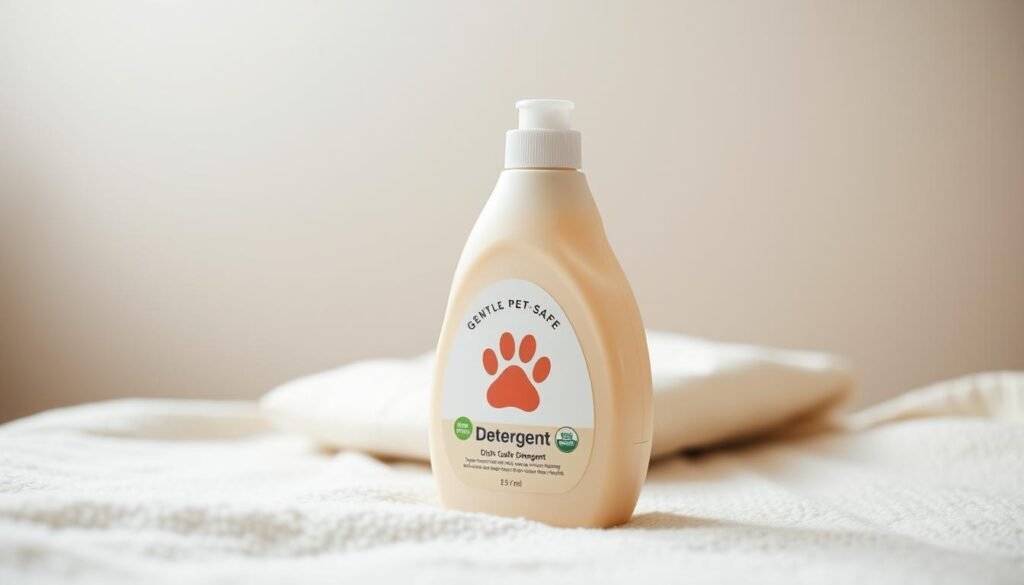
- Reduced risk of chemical exposure
- Gentle on pet’s skin
- Effective cleaning
- Peace of mind for pet owners
Choosing a gentle pet dish detergent keeps your pet’s environment safe and healthy.
Harmful Ingredients to Avoid in Dish Detergents
Your pet’s safety depends on the dish detergent you choose. Not all dish detergents are safe for pets. Many have harmful chemicals that can harm your pet.
Chemical Surfactants and Their Effects
Chemical surfactants help clean dishes well. But, some can be toxic to pets. It’s important to use a pet-safe dish detergent with gentle surfactants.
Fragrances and Dyes
Fragrances and dyes make dish detergents smell good and look nice. But, they can cause allergic reactions and skin irritations in pets. A fragrance-free and dye-free dish detergent is safer for your pet’s bowls.
Phosphates and Bleach
Phosphates and bleach are harsh chemicals in many dish detergents. They can harm the environment and leave toxic residues on dishes. Choosing a detergent without phosphates and bleach is safer for your pet.
Preservatives and Antibacterial Agents
Some detergents have preservatives and antibacterial agents to last longer and clean better. But, these can be harmful if pets eat them. Triclosan, a common agent, has health risks. A detergent with natural preservatives or labeled as non-toxic is safer.
| Harmful Ingredient | Potential Risk | Safer Alternative |
|---|---|---|
| Chemical Surfactants | Skin irritation, toxicity | Gentle, non-toxic surfactants |
| Fragrances and Dyes | Allergic reactions, skin irritations | Fragrance-free and dye-free |
| Phosphates and Bleach | Environmental pollution, harmful residues | Phosphate-free and bleach-free |
| Preservatives and Antibacterial Agents | Health concerns, toxicity | Natural preservatives, biodegradable |
Safe and Effective Ingredients to Look For
The right ingredients in dish detergent are key for your pet’s health and cleanliness. When looking for pet-safe dish detergent, knowing what to look for is important. This ensures the product is safe and works well.
Plant-Based Surfactants
Plant-based surfactants are a must in pet-safe dish detergents. They come from natural sources like coconut or palm oil. These surfactants clean well without leaving harsh chemicals behind. They also break down easily, which is good for the environment. Plant-based surfactants are gentle on skin and surfaces. They can also be composted or biodegraded.
Natural Disinfectants
Natural disinfectants like white vinegar and baking soda are safe and effective for pet bowls. White vinegar fights bacteria, and baking soda removes tough stains. Using these natural disinfectants gives pet owners peace of mind, avoiding harsh chemicals. Here are some natural disinfectants to look for:
- White vinegar
- Baking soda
- Essential oils (in some cases)
Biodegradable and Hypoallergenic Formulations
Biodegradable and hypoallergenic formulas are key to avoid skin irritation or allergies in pets. These formulas break down naturally, which helps the environment. Choose dish detergents labeled as biodegradable and hypoallergenic for your pet’s safety.
Top Commercial Pet-Safe Dish Detergents
The market has many dish detergents, but not all are safe for pets. It’s key to pick a pet-friendly cleaning solution. Now, pet owners can choose from many detergents that are safe and effective.
Eco-Friendly Multi-Purpose Cleaners
Eco-friendly multi-purpose cleaners are good for pet owners who care about the environment. They are made from natural ingredients and are safe for pets. Some popular options include:
- Seventh Generation Dish Liquid: Known for its plant-based ingredients and biodegradable formula.
- Ecover Multi-Purpose Cleaner: Offers a range of eco-friendly cleaning products that are safe for pets.
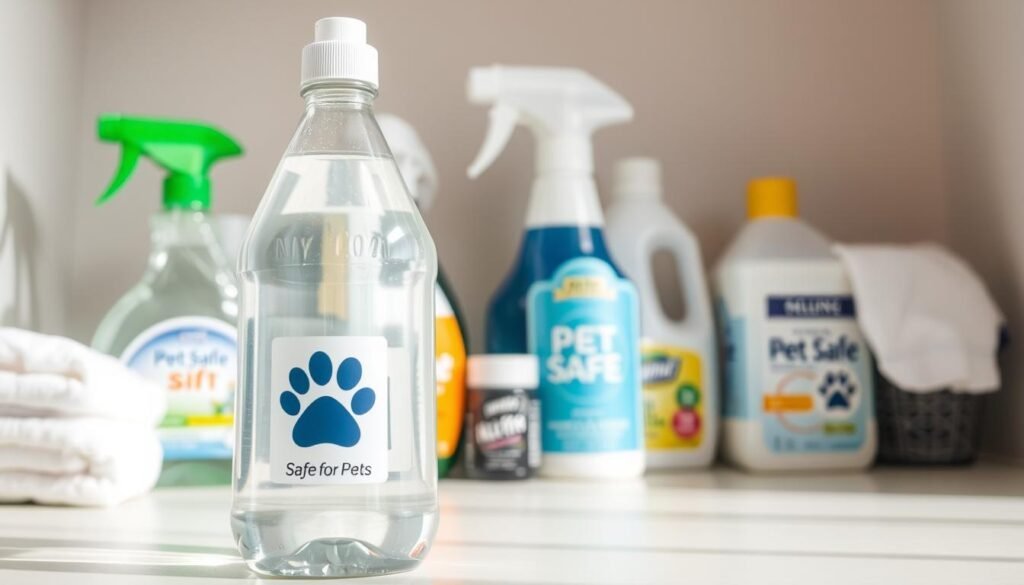
Specialized Pet Bowl Detergents
Specialized pet bowl detergents are made for cleaning pet food and water bowls. They remove tough pet food residue and stains. They are also gentle on the bowls and safe for pets.
- PetSafe Healthy Pet Bowl Cleaner: A super concentrated liquid pet dish detergent designed for the animal care industry.
- Earthbath All-Natural Pet Shampoo and Bowl Cleaner: Although primarily a shampoo, this product can also be used to clean pet bowls effectively.
Fragrance-Free Options
For pets with sensitivities, fragrance-free options are a must. These detergents do not have fragrances or dyes that can irritate pets.
- Pure & Gentle Dish Soap: A fragrance-free and hypoallergenic dish soap that is safe for pets.
- Method Fragrance-Free Dish Soap: Offers a gentle and effective cleaning solution that is free from harsh fragrances.
Budget-Friendly Choices
Pet owners on a budget can find affordable pet-safe dish detergents. These options are not only budget-friendly but also effective and safe for pets.
- Dr. Bronner’s Sal Suds: A multi-purpose cleaner that is affordable and safe for pets.
- Amazon’s Choice Pet Bowl Cleaner: An affordable and effective option for cleaning pet bowls.
DIY Pet-Safe Cleaning Solutions
For pet owners looking for a natural way, DIY cleaning is a good choice. Making your own effective pet dish cleanser at home saves money and is good for the planet. You can use things you already have at home to keep your pet’s dishes clean and safe.
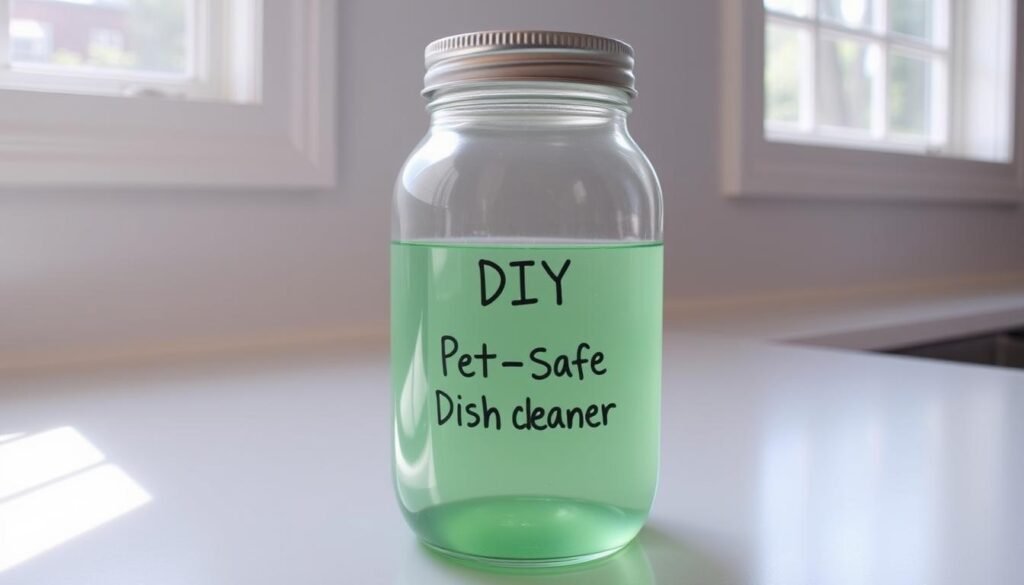
Vinegar-Based Cleaners
Vinegar is a natural cleaner that works well against grease and grime. To make a vinegar cleaner, mix equal parts water and white vinegar in a spray bottle. Spray it on pet dishes, wait a few minutes, and then rinse well. This method is eco-friendly and won’t cost much.
Baking Soda Formulas
Baking soda is great for making a gentle yet effective cleaner. Mix 1 tablespoon of baking soda with 1 cup of warm water to make a paste. Rub the paste on pet dishes, then rinse. Baking soda is good for getting rid of tough stains and smells.
Lemon and Essential Oil Additions
Adding lemon juice or certain essential oils to your cleaner makes it better and smells nice. Lemon juice fights bacteria, and essential oils like tea tree or lavender oil add extra protection. But make sure the essential oils are safe for pets.
Using these DIY cleaning solutions lets pet owners feel sure their dishes are clean and chemical-free. You can pick from vinegar, baking soda, or lemon for a safe and effective pet dish cleanser option.
Best Practices for Cleaning Different Pet Dish Materials
The type of material your pet’s dishes are made of matters. The right cleaning method keeps dishes lasting longer and keeps your pet healthy.
Stainless Steel Bowls
Stainless steel bowls are tough and won’t scratch easily. To clean them, use hot water and an eco-friendly pet dish soap. Don’t use rough scrubbers that can scratch. For hard stains, try baking soda and water as a soft scrub.
Ceramic and Porcelain Dishes
Ceramic and porcelain dishes are easy to clean because they’re non-porous. Wash them with gentle, eco-friendly dish soap and warm water. Don’t use bleach or harsh chemicals that can harm the glaze. A soft sponge works well for daily cleaning, but soak them for tough stains.
Plastic Containers
Plastic dishes are light and cheap but can get dirty. Clean them with warm soapy water and a soft-bristled brush to get rid of food bits. Check if they’re dishwasher safe to sanitize them well. Don’t use plastic that’s scratched or old, as it can harbor bacteria.
Silicone and Rubber Accessories
Silicone and rubber pet items, like mats and collars, need gentle care. Clean them with mild soap and lukewarm water. Stay away from harsh chemicals or rough cleaners that can damage them. Regular cleaning stops bacteria and bad smells from building up.
By using these cleaning tips for different materials and eco-friendly pet dish soap, you can keep your pet’s dishes and accessories clean and safe.
Cleaning Schedule and Maintenance for Pet Utensils
Keeping your pet’s bowls clean is key. Use a non-toxic pet dish cleaner to keep them safe. Cleaning often stops bad bacteria and keeps utensils in top shape.
Daily Quick Cleaning Routine
Wash your pet’s bowls every day. Use a gentle, non-toxic pet dish cleaner after meals. This stops bacteria and keeps bowls clean.
Keep pet-safe dish soap handy. It makes cleaning easy.
Weekly Deep Cleaning Protocol
Deep clean once a week. Soak bowls in warm water and non-toxic pet dish cleaner. Then, scrub well.
Addressing Biofilm and Bacterial Growth
Biofilm can form if not cleaned right. Use a non-toxic pet dish cleaner to fight it. Sanitize often to control bacteria and keep pets healthy.
Conclusion
Using a pet-friendly dishwashing liquid is key for a clean, safe space for your pets. Regular dish soaps can have toxic ingredients that harm pets. Choosing a pet-safe detergent keeps your pet’s food utensils clean and free from harmful chemicals.
For effective cleaning, wash pet bowls in the sink or dishwasher if they’re dishwasher-safe. When washing by hand, use soap or detergent and warm water. Then, scrub with a sponge or brush and rinse well. For more tips, check out the CDC’s guidelines on cleaning pet supplies.
By using pet-friendly dishwashing liquid and following these guidelines, you protect your pets from harmful chemicals. Keeping your pets safe through safe cleaning is easy and important for their health.
FAQ
What makes a dish detergent “pet-safe”?
Can I use regular dish soap to clean my pet’s food utensils?
What are the common symptoms of detergent sensitivity in pets?
Are eco-friendly dish detergents safe for pets?
Can I make my own pet-safe dish detergent at home?
How often should I clean my pet’s food utensils?
What is the best way to clean stainless steel pet bowls?
Are fragrance-free dish detergents a good option for pets with sensitivities?

Ryan Conlon is the founder of PetFriendlyRecipes.com, a resource dedicated to helping pet owners create simple, healthy meals and treats at home. With a background in web publishing and a focus on practical content, Ryan built the site to make homemade pet food easier to understand and more accessible for everyone.
Subscribe to Our Newsletter

